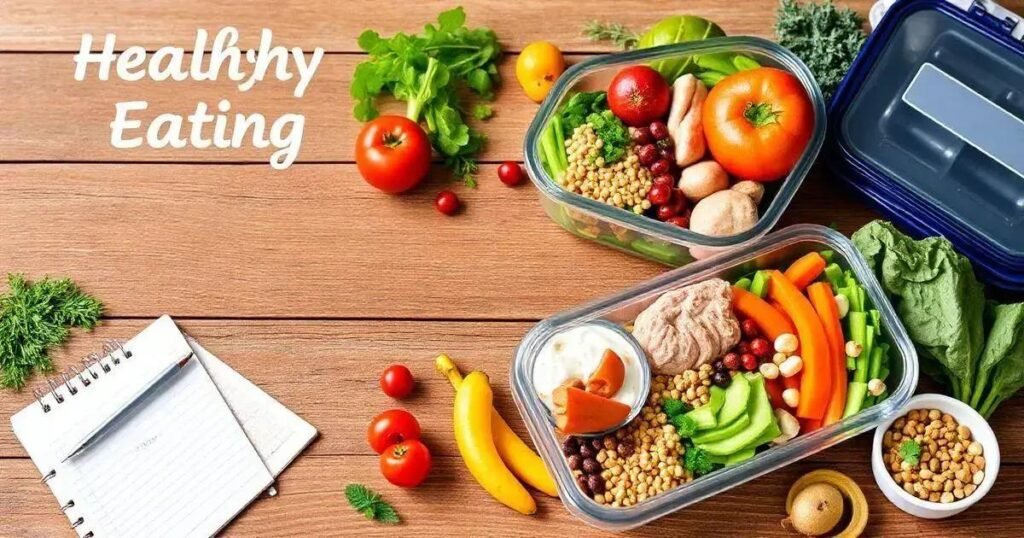Are you tired of feeling sluggish and run down? Do you struggle to find the energy to tackle your daily tasks? Healthy eating can be the game-changer you need to boost your energy and overall wellbeing.
By adopting a balanced diet rich in nutrients and whole foods, you can experience a significant improvement in your physical and mental health.
Table of Contents
Benefits of Healthy Eating
The benefits of healthy eating are numerous and varied, from improving energy levels and boosting the immune system to reducing the risk of chronic diseases and improving overall mental wellbeing.
A healthy diet rich in fruits, vegetables, whole grains, and lean proteins can also support weight management, improve digestion, and promote healthy skin.
Health Benefits
By adopting a balanced diet, individuals can experience a significant reduction in their risk of developing conditions such as heart disease, type 2 diabetes, and certain types of cancer.
Furthermore, a healthy diet can also support healthy aging, maintaining cognitive function, and promoting a sense of overall wellbeing.
Nutrition Essentials for a Healthy Diet

A healthy diet is built on a foundation of essential nutrients, including protein, healthy fats, and complex carbohydrates. Protein provides building blocks for muscles and organs, while healthy fats support brain function and hormone production. Complex carbohydrates, such as whole grains, fruits, and vegetables, provide sustained energy and fiber.
In addition to these macronutrients, a healthy diet also requires essential micronutrients like vitamins and minerals. These nutrients can be found in a variety of whole foods, including lean meats, fish, dairy products, and fortified plant-based milk.
A well-balanced diet that includes a variety of these nutrients can help support overall health and wellbeing.
Healthy Snacking Tips
Healthy snacking is an essential part of a balanced diet, providing a quick and easy way to refuel and recharge.
To make the most of your snacks, focus on whole foods like fruits, vegetables, nuts, and seeds.
Avoid sugary or high-sodium options, and opt for portion-controlled snacks to keep you satisfied until your next meal.
Some healthy snacking tips include:
Keeping a bowl of fruit on your desk, preparing a week’s worth of snacks on the weekend, and choosing snacks that are high in fiber and protein.
Additionally, consider incorporating healthy fats like avocado, nuts, and seeds into your snacking routine.
By making a few simple changes to your snacking habits, you can support your overall health and wellbeing.
Meal Planning for a Balanced Diet

Meal planning is a crucial aspect of maintaining a balanced diet. It involves creating a schedule for your meals and snacks, taking into account your dietary needs and preferences.
A well-planned meal can help you stick to your nutritional goals, reduce food waste, and save time and money.
To plan a balanced meal, start by considering your daily caloric needs and macronutrient requirements. Then, choose a variety of whole foods, including lean proteins, whole grains, and a range of colorful vegetables.
Don’t forget to include healthy fats and fiber-rich foods in your meal plan.
By planning your meals in advance, you can ensure that you’re getting the nutrients your body needs to function at its best.
Staying Motivated for Healthy Eating
Staying motivated on your healthy eating journey can be challenging, but there are several strategies you can use to keep yourself on track.
One key approach is to set realistic goals and celebrate your successes along the way. This can help you build confidence and momentum, making it easier to stay motivated.
Another important strategy is to find healthy foods that you enjoy eating, as this will make it easier to stick to your diet.
You can also try to find a workout buddy or join a healthy eating community to provide support and accountability.
Additionally, tracking your progress can be a powerful motivator, whether it’s through a food diary or by taking progress photos.
By combining these strategies, you can stay motivated and committed to your healthy eating goals.
Common Mistakes to Avoid

When it comes to healthy eating, there are several common mistakes that people make that can hinder their progress. One of the most common mistakes is not being mindful of portion sizes, leading to consuming too many calories.
Another mistake is neglecting to read food labels, which can lead to consuming high amounts of added sugars, salt, and unhealthy fats.
Additionally, many people make the mistake of skipping meals or going too long without eating, which can lead to overeating later in the day.
It’s also important to avoid relying too heavily on fad diets or quick fixes, as these are often unsustainable and can lead to nutrient deficiencies.
By being aware of these common mistakes and taking steps to avoid them, you can set yourself up for success on your healthy eating journey.
FAQ – Frequently Asked Questions about Healthy Eating
What are the benefits of healthy eating?
Healthy eating provides numerous benefits, including increased energy levels, improved overall health, and reduced risk of chronic diseases.
What are the essential nutrients for a healthy diet?
The essential nutrients for a healthy diet include protein, healthy fats, complex carbohydrates, vitamins, and minerals.
How can I stay motivated on my healthy eating journey?
Staying motivated on your healthy eating journey can be achieved by setting realistic goals, celebrating small victories, and tracking your progress.
What common mistakes should I avoid when trying to eat healthy?
Common mistakes to avoid when trying to eat healthy include not being mindful of portion sizes, neglecting to read food labels, and relying too heavily on fad diets.
How can I plan my meals for a balanced diet?
Planning your meals in advance can help you achieve a balanced diet by ensuring you are getting the necessary nutrients and avoiding unhealthy options.
What are some healthy snacking options?
Healthy snacking options include fruits, vegetables, nuts, and seeds, as well as whole grain crackers and low-fat dairy products.



